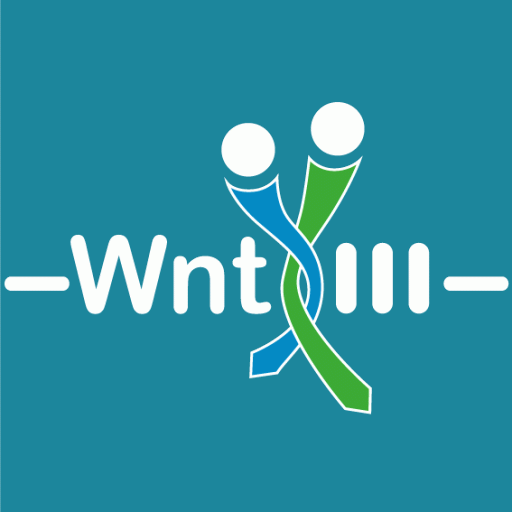Signaling and Functional Genomics
Prof. Dr. Michael Boutros
We study cellular signaling networks using genetic and genomic approaches with a focus on Wnt signaling pathways
Research Strategy
Signaling Networks / ERC DECODE
Signal transduction pathways and their integration into cellular networks play a key role for cell differentiation, pattern formation, and homeostasis. The ability to correctly receive and transmit molecular signals is crucial for all organisms. Perturbations leading to improper activation, for example through mutations, have severe consequences, such as the development of cancer in man. We are studying signaling systems using genetic and genomic analysis approaches. We pursue both experimental and computational approaches and study conserved developmental-oncogenic signaling pathways in cultured human cells and in model organisms.
Wnt signaling is an evolutionarily conserved signal transduction route that plays key roles during development, stem cell maintenance and human diseases. Aberrant activation of Wnt signaling, for example, has been linked to the development of colorectal cancer. We work on identifying and characterizing novel Wnt pathway components using genetic and genomic approaches in order to understand how Wnt signaling is regulated. In the past years, a particular focus of our studies has been on systematic screening approaches, novel routes how Wnt proteins are secreted and how signals are transmitted at the plasma membrane.
A second focus in our group is the application of large-scale genetic and genomic approaches, such as RNAi and CRISPR screening, to comprehensively characterize the interplay of genetic networks on a genome-wide scale. By characterizing the architecture and context-dependence of genetic networks we aim to better understand cell fate and to unravel the contribution of the genetic networks to organismal traits including diseases. We are studying genetic networks in their tissue context in vivo at single-cell resolution to address the question on how genetic networks adapt and change across tissues, developmental stages and upon intrinsic and extrinsic challenges.
Collaborative Research Center on Mechanisms and Functions of Wnt signaling
The Collaborative Research Center 1324 is a DFG-funded interdisciplinary research consortium focused on the mechanisms and functions of Wnt signaling (Spokesperson: Michael Boutros). Researchers from Heidelberg University work closely with scientists from the medical faculties in Heidelberg and Mannheim and from the German Cancer Research Center (DKFZ), the European Laboratory for Molecular Biology (EMBL), the Karlsruhe Institute of Technology (KIT) and the University of Göttingen.
Wnt signaling is a complex signal transduction pathway with multiple Wnt ligands and receptors. Despite having gained an enormous amount of knowledge about components and mechanisms of Wnt signaling, we are now facing a multitude of new questions about the specificity of signaling input and the control of signaling output during development and in disease. To advance our understanding of molecular mechanisms governing Wnt signal transduction, the CRC1324 is studying Wnt secretion, trafficking and receptor-ligand interactions as well as Wnt coupling to downstream and context-dependent signaling. We aim at understanding how Wnt ligands are produced, how they are modified and how they are transported in the extracellular space. We also want to unravel the Wnt ligand receptor interactions and understand how they specify the signaling response and induce different signaling cascades. We are focusing on the molecular dynamics of the Wnt machinery to understand how different Wnt pathways elicit distinct biological responses and how Wnt signaling is coupled to different downstream factors, including the spatio-temporal dynamics of Wnt signaling. To address these questions, the consortium is combining a wide range of model systems including hydra, fly, fish, frog, as well as mouse and human cells with cutting-edge technologies including advanced fluorescence microscopy, genetic screens and genome engineering, and proteomics.
ERC SYNERGY Grant DECODE
The DECODE project funded by ERC brings together experimental (Michael Boutros, Jan Lohmann) and theoretical (Wolfgang Huber, Oliver Stegle) groups with complementary expertise in model organism genetics and cellular phenotyping, single-cell genomics, statistics and computational biology.
The evolutionary success of multicellular organisms is based on the division of labor between cells. While some of the molecular determinants for cell fate specification have been identified, a fundamental understanding of which genetic activities are required in each cell of a developing tissue is still outstanding. The DECODE project will develop and apply leading-edge system genetics methods to Arabidopsis and Drosophila, two major model systems from the plant and animal kingdoms to decode context-dependent genetic networks in vivo. Building on our combined expertise, we will create functional genetic maps using conditional CRISPR/Cas9-based single- and higher order knockout perturbations in vivo combined with single-cell expression profiling and imaging. Coupled with powerful computational analysis, this project will not only define, predict and rigorously test the unique genetic repertoire of each cell, but also unravel how genetic networks adapt their topology and function across cell types and external stimuli. This project will create the largest single-cell perturbation map in any model organism and will provide fundamental insights into the genetic architecture of complex tissues.

Prof. Dr. Michael Boutros
- +49 (0)6221 42-1951
- boutros@mk.uni-heidelberg.de
- m.boutros@dkfz.de
- Find out more information here
Selected Publications
A complete list of publications can be found here.
A global genetic interaction network by single-cell imaging and machine learning.
Florian Heigwer, Christian Scheeder, Josephine Bageritz, Schayan Yousefian, Benedikt Rauscher, Christina Laufer, Sergi Beneyto-Calabuig, Maja Christina Funk, Vera Peters, Maria Boulougouri, Jana Bilanovic, Thilo Miersch, Barbara Schmitt, Claudia Blass, Fillip Port, Michael Boutros
Cell Syst.2023 May 17;14(5):346-362.e6.
The drug-induced phenotypic landscape of colorectal cancer organoids.
Betge J, Rindtorff N, Sauer J, Rauscher B, Dingert C, Gaitantzi H, Herweck F, Srour-Mhanna K, Miersch T, Valentini E, Boonekamp KE, Hauber V, Gutting T, Frank L, Belle S, Gaiser T, Buchholz I, Jesenofsky R, Härtel N, Zhan T, Fischer B, Breitkopf-Heinlein K, Burgermeister E, Ebert MP, Boutros M
Nat Commun. 2022; 13: 3135
Microenvironmental innate immune signaling and cell mechanical responses promote tumor growth
Jun Zhou, Erica Valentini, Michael Boutros
Dev Cell.2021 Jul 12;56(13):1884-1899.e5.

